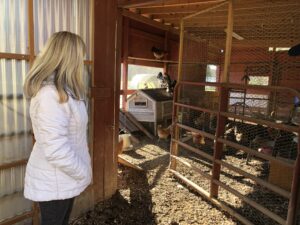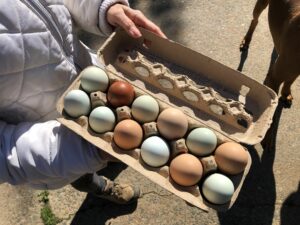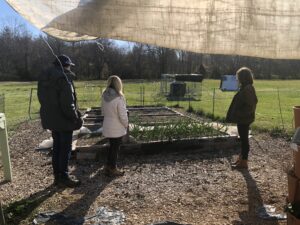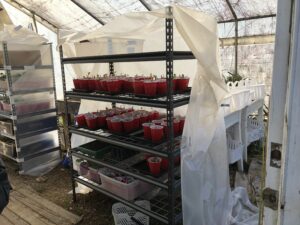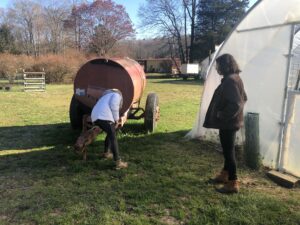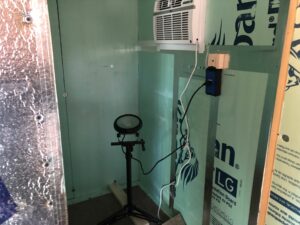Willow Ridge Farmstead
go.ncsu.edu/readext?927339
en Español / em Português
El inglés es el idioma de control de esta página. En la medida en que haya algún conflicto entre la traducción al inglés y la traducción, el inglés prevalece.
Al hacer clic en el enlace de traducción se activa un servicio de traducción gratuito para convertir la página al español. Al igual que con cualquier traducción por Internet, la conversión no es sensible al contexto y puede que no traduzca el texto en su significado original. NC State Extension no garantiza la exactitud del texto traducido. Por favor, tenga en cuenta que algunas aplicaciones y/o servicios pueden no funcionar como se espera cuando se traducen.
Português
Inglês é o idioma de controle desta página. Na medida que haja algum conflito entre o texto original em Inglês e a tradução, o Inglês prevalece.
Ao clicar no link de tradução, um serviço gratuito de tradução será ativado para converter a página para o Português. Como em qualquer tradução pela internet, a conversão não é sensivel ao contexto e pode não ocorrer a tradução para o significado orginal. O serviço de Extensão da Carolina do Norte (NC State Extension) não garante a exatidão do texto traduzido. Por favor, observe que algumas funções ou serviços podem não funcionar como esperado após a tradução.
English
English is the controlling language of this page. To the extent there is any conflict between the English text and the translation, English controls.
Clicking on the translation link activates a free translation service to convert the page to Spanish. As with any Internet translation, the conversion is not context-sensitive and may not translate the text to its original meaning. NC State Extension does not guarantee the accuracy of the translated text. Please note that some applications and/or services may not function as expected when translated.
Collapse ▲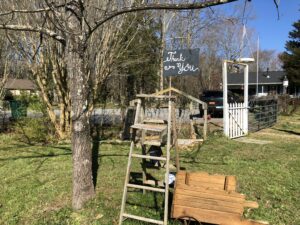 Bordered in between the Muddy Creek and a residential neighborhood, Willow Ridge Farmstead is a new addition to Forsyth County Urban Agriculture. Jeanne Giordano is a wife, mother and as of this past year a farmer. She is a 2022 graduate of the Forsyth County Urban Farm School (UFS)and she recently hosted a few staff from Cooperative Extension for a farm visit. The wooden fence at the entrance is interlaced with dormant grapevines. Signs scattered around the property say thank you and welcome.
Bordered in between the Muddy Creek and a residential neighborhood, Willow Ridge Farmstead is a new addition to Forsyth County Urban Agriculture. Jeanne Giordano is a wife, mother and as of this past year a farmer. She is a 2022 graduate of the Forsyth County Urban Farm School (UFS)and she recently hosted a few staff from Cooperative Extension for a farm visit. The wooden fence at the entrance is interlaced with dormant grapevines. Signs scattered around the property say thank you and welcome.
How does a farmer decide to become a farmer? When asked about her decision to begin farming, Giordano says that once her children moved out it started with a greenhouse. It was a gift from a friend and she filled it with herbs. Her progression since then is remarkable. She credits her husband for being the workhorse behind their success. Their teamwork shows.
When asked why her family chose this space for farming, Giordano laughs and says, “We moved here to build a dirt bike course. Our sons enjoyed dirt biking and my husband still rides. The 14 acres is low lying and the Muddy Creek rises once a year for a quick cover and retreat. Even though most of the acreage is not good for houses, the yearly deposit of fertile silt makes it great for farming. The earthen dirt bike ramps and elliptical tracks are part of the landscape. Farmers need fun too.
Walking toward the chicken house, there can be seen a circle of tables and chairs and rows of blueberry bushes. This is the produce stand that will become active June-November 2023. U-pick blueberries were the first appeal to customers. The bushes were onsite when they moved in. The open door of the barn reveals goats and chickens. Giordano says the barn was originally used for their horses but once their children moved out they decided to make a change.
The birds saunter in and out of the building scratching and clucking: some brown, some ochre and some black and white. Currently they’re producing two dozen eggs a day, blue, tan and dark brown in color. Additionally, meat chickens are raised in groups of 25, predominantly Americana and sold for meat. When asked about the role of the goats, Giordano smiles and says, “Compost! We collect their gifts and build up our compost to amend the soil.”
When asked about lessons learned, Giordano says, “we just keep trying new things.” All along she has listened to her visitors and for every addition made, the farm’s diversity widens the base of appeal. One innovation she shares is that when they first started processing chickens for meat they didn’t keep the feet. Soon she realized they could process the feet for dog treats, another avenue for revenue.
Urban agriculture impacts local communities. Giordano sees the impact in her neighborhood relationships. There’s a little boy who comes over with his parents every week just to look at the animals. Repeatedly, her neighbors say that they didn’t have access to local healthy food until Willow Ridge Farmstead, “The people have been amazingly receptive. Preparing for the weekly produce stand is hard work, but I love the conversations with people,” says Giordano.
When nightly temperatures were freezing, Giordano was prepared. Inside her greenhouse there is a smaller greenhouse for her propagated seedlings. The broccoli transplants are at eye level and there’s three racks of red solo cups hosting a variety of transplants. “My son left these cups, so I recycled them for my garden.”
The trend in Forsyth County is that farm acreage is reducing every year, due in part to the rising value of real estate. Giordano is not tempted, she waves her hand and says “we’ve worked too hard to get to this stage of progress.” Their location next to Muddy Creek is key not only for the silt that’s been deposited over the land but also for watering their garden. Celine Richard, horticulture agent troubleshoots with Giordano on ways to increase her irrigation efficiency as she expands her growing space.
Giordano grows both in wooden raised beds and in-ground rows. The raised beds are sturdy, made from recycled shipping crates. There are rows of cold hardy plants outside of the greenhouse, including onions, garlic, collards and strawberries. The scale and variety of plants gives the impression that Giordano is a seasoned veteran, but she describes herself as being new to growing. She says that before Urban Farm School she had not grown plants.
This past summer, she and her husband started a produce stand on their property. Advertising on social media and with signs in her neighborhood, she sold out repeatedly. She attributes her success to good teaching with Cooperative Extension, good neighbors and her husband’s support. Since attending the Forsyth County Urban Farm School (UFS), Giordano has attended several conferences for continuing education, but she laughs and says, “I’ve already heard that in Celine’s UFS class. I just keep going back to my UFS binder. I went from 0-100, thanks to that class.”
Selling fresh produce was just the beginning. Last season when the Giordanos faced the common dilemma of a good bounty, they offered value added products: eggplant prepared and frozen for quick dinners, refrigerator pickles and even french toast. “We couldn’t make enough.” Her husband sold pound after pound of pickles.
Working progressively, Giordano shows a wise resolve to grow one step at a time. Last summer, her cooler space was an extra refrigerator in the garage. Her husband is building her an upgrade for this summer: an onsite building with a walk-in cooler using a coolbot. He’s quite a tinkerer. He even converted an old washing machine into a chicken plucker.
Humble and gracious, Giordano has already begun to share her wisdom and experience with the next generation. An NC State student lives in the neighborhood, Linnese. She comes over on a regular basis to work alongside Giordano as an apprentice. The first time she came over they pulled weeds. Giordano thought she’d never come back. The second time they moved 4.5 tons of dirt. The third time she helped process chickens. Thankfully, she just keeps asking, “What’s next?”
Considering increasing your support of local foods? There are multiple benefits of the consumption of local produce.
- Less fossil fuels are burned because the food doesn’t have to travel as far
- Local farmers are the majority stakeholders in water and soil conversation
- Local economy is benefited by local patronage of farmers.
- Consuming local food is correlated with greater consumption of fruits and vegetables. A positive cycle is created.
- There is also a community building aspect to local produce, relationships are made.
If you want to support this local farmer, Willow Ridge Farmstead hosts Thursday night open mic nights and Saturday Morning Farm to Table breakfasts along side her market stand at the farm! Follow her on instagram.
If you have further questions please contact:
Celine Richard, Horticulture/ Urban Agriculture Agent, cvrichar@ncsu.edu, 336-703-2869





